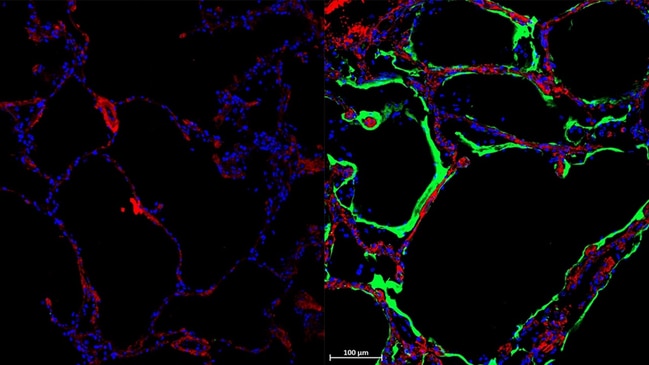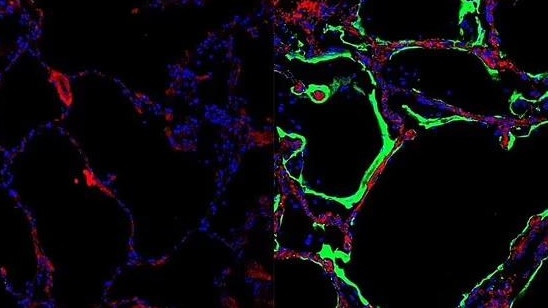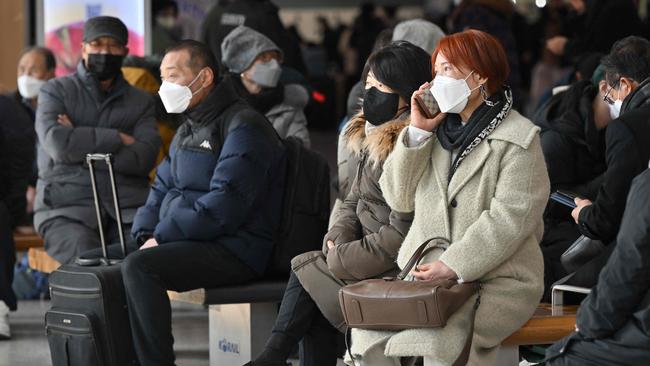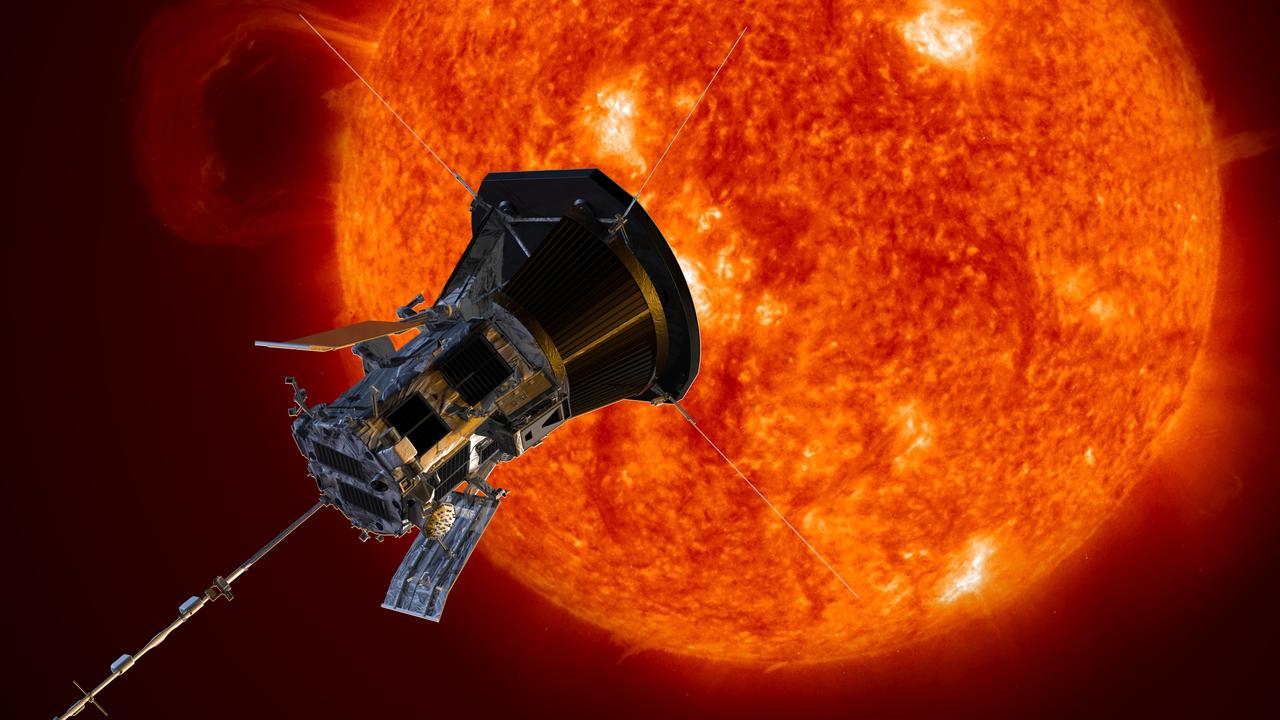University of Sydney scientists make ‘crazy’ Covid-19 discovery
Aussie scientists have made an incredible find that could explain why some of us get sick and even die from the virus, while the rest of us are fine.

Science
Don't miss out on the headlines from Science. Followed categories will be added to My News.
Australian scientists have made an incredible discovery that could change the way we view Covid.
The findings could explain one disease’s biggest mysteries — why some people suffer serious illness with the virus, or even death, while others never get sick or appear symptomless.
University of Sydney researchers discovered a protein in the lung that blocks Covid infection and forms a natural protective barrier in the human body.
The naturally occurring protein, LRRC15, works by attaching itself to the virus, stopping Covid particles from binding with more vulnerable cells - as well as reducing the chance of infection.

The research offers a promising pathway to develop new drugs to prevent Covid or deal with fibrosis in the lungs.
The study led by Professor Greg Neely found that this new receptor acts by binding to the virus and sequestering it which reduces infection.
“For me, as an immunologist, the fact that there’s this natural immune receptor that we didn’t know about, that’s lining our lungs and blocks and controls viruses, that’s crazy interesting,” Professor Neely said.
“We can now use this new receptor design broad acting drugs that can block viral infection or even suppress lung fibrosis.”
How it works
The Covid-19 virus infects humans by using a spike protein to attach to a specific receptor in our cells. It primarily uses a protein called the angiotensin-converting enzyme 2 (ACE2) receptor to ender human cells.

Lung cells have high levels of ACE2 receptors, which is why the Covid-19 virus often causes severe problems in this organ.
Like AEC2, LRRC15 is a receptor for Covid meaning the virus can bind to it. But unlike ACE2, LRRC15 does not support infection.
It can however stick to the virus and immobilise it.
Researchers believe patients who died from Covid did not produce enough of the protein, or produced it too late to make a difference.
“We think it acts a bit like Velcro, molecular Velcro, in that it sticks to the spike of the virus and then pulls it away from the target cell types,” another researcher Dr Lipin Loo said.
The breakthrough comes as millions of Australians are now eligible for a fifth Covid vaccine within a fortnight.
The Australian Technical Advisory Group on Immunisation has recommended that all people aged 18 and over receive a top-up jab, no matter how many doses they’ve already received, as long as they have not been infected with the virus in the last six months.
Up to four million Australians are estimated to have been struck down with Covid-19 just in the past four months.
More than 2600 Australians have died with the virus since October. Around 800 of those deaths were aged care residents.
Originally published as University of Sydney scientists make ‘crazy’ Covid-19 discovery





